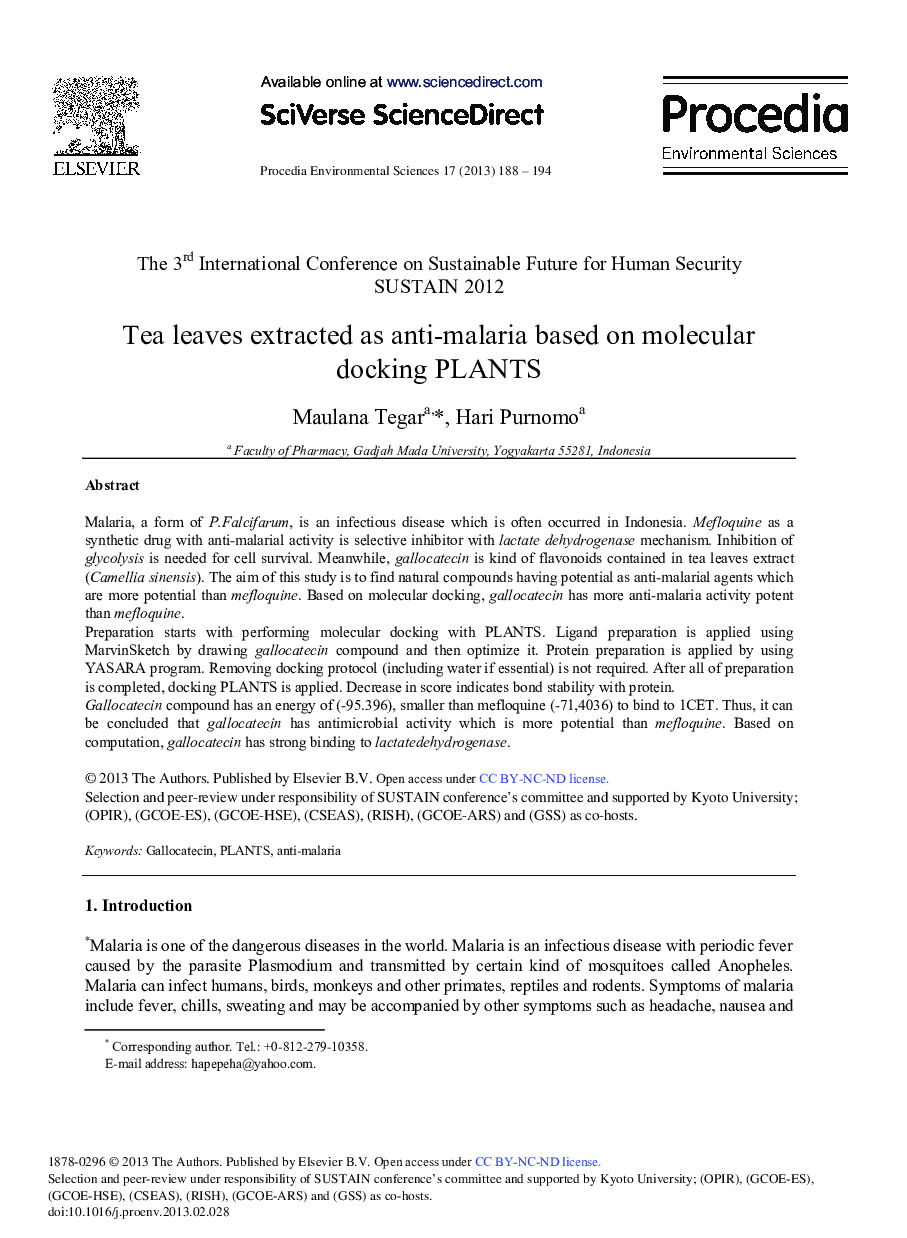| کد مقاله | کد نشریه | سال انتشار | مقاله انگلیسی | نسخه تمام متن |
|---|---|---|---|---|
| 4402393 | 1618627 | 2013 | 7 صفحه PDF | دانلود رایگان |

Malaria, a form of P.Falcifarum, is an infectious disease which is often occurred in Indonesia. Mefloquine as a synthetic drug with anti-malarial activity is selective inhibitor with lactate dehydrogenase mechanism. Inhibition of glycolysis is needed for cell survival. Meanwhile, gallocatecin is kind of flavonoids contained in tea leaves extract (Camellia sinensis). The aim of this study is to find natural compounds having potential as anti-malarial agents which are more potential than mefloquine. Based on molecular docking, gallocatecin has more anti-malaria activity potent than mefloquine.Preparation starts with performing molecular docking with PLANTS. Ligand preparation is applied using MarvinSketch by drawing gallocatecin compound and then optimize it. Protein preparation is applied by using YASARA program. Removing docking protocol (including water if essential) is not required. After all of preparation is completed, docking PLANTS is applied. Decrease in score indicates bond stability with protein.Gallocatecin compound has an energy of (-95.396), smaller than mefloquine (-71,4036) to bind to 1CET. Thus, it can be concluded that gallocatecin has antimicrobial activity which is more potential than mefloquine. Based on computation, gallocatecin has strong binding to lactatedehydrogenase.
Journal: Procedia Environmental Sciences - Volume 17, 2013, Pages 188-194